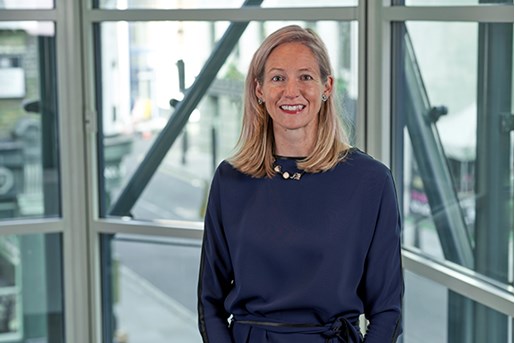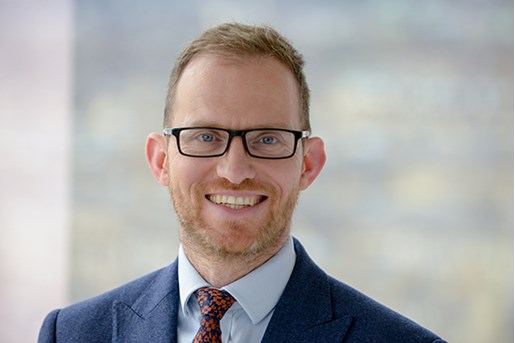Last week Addleshaw Goddard's European Private Equity and Private Funds team was out in force, rubbing shoulders in the sweltering Berlin summer heat with GPs, LPs and celebrities at the world's leading PE GP/LP relations conference.
So, what went down at SuperReturn? Here are three key themes and seven takeaways from us.
Ready: GPs are readying (and longing) for an uptick in fundraising and deal activity (with a close interrelation between the two).
Steady: LPs are keeping their PE allocations steady and waiting for distributions before writing new cheques to GPs.
Grow: In a more challenging market for PE, certain subsectors and geographies are still seeing significant growth – in particular, GP stakes and credit strategies and the Middle East and Asia. Furthermore, tapping into an affluent retail investor market still holds promise for many GPs seeking to grow their LP base.
Read on for our seven key takeaways from a hot few days for GPs and LPs in Berlin.
- #1 THE DENOMINATOR EFFECT
If “continuation funds” dominated the 2022 SuperReturn word cloud, then without question “denominator effect” was the buzz phrase of 2023.
The tougher fundraising environment was evident in the LP meeting marathons undertaken by most GPs. Various macro concerns for the short to medium term and the way in which the poor performance of other asset classes has distracted LPs' attention away from private equity are an unwelcome added challenge.
As one GP said, “even the top quartile funds seem to be finding the last 20% difficult”, and whilst most GPs we saw were optimistic that ultimately, they would be “OK”, there can be no doubt that the dynamic has shifted and GPs will need to ensure they have a healthy pipeline of new LP candidates rather than being able to rely on existing LPs to re-up.
- #2 RETAIL ATTRACTION
With GPs looking to broaden their LP base and given PE’s relative outperformance, how can more individuals get a more direct piece of the action?
Finding ways to source “affluent” (not quite high-net-worth but a far cry from "widows and orphans") personal wealth continues to be an emerging theme on both sides of the Atlantic. In fact, we met LPs established to achieve just that throughout Europe, seeking to aggregate retail investors' commitments for onwards deployment into PE.
Given the prevailing themes of slash and burn asset stripping being dead and buried, and leverage and arbitrage no longer giving an easier route to outperforming returns, it seems inevitable that more sustainable value enhancement strategies will prevail, and in turn this may attract an increasing number of Europe’s middle-class seeking a bit of the action without losing sleep at night.
And the denominator disadvantage currently being encountered with institutional LPs will act as a further accelerator to make this happen. GPs are exploring to what extent new fund or updated fund structures, like the UK's Long Term Asset Fund and European Long Term Investment Fund can ease the path.
- #3 THE MID-MARKET COULD LOOK A BIT DIFFERENT IN 5-10 YEARS
If mid-market European PE firms looked at their own industry as a potential investor in it, then what would they see?
Some of the larger cap funds we heard from suggest an industry of numerous small, independent operators who will continue to struggle to differentiate themselves from the pack in a more competitive environment, or compete with larger investment firms with the resources to execute the even more critical value creation required to deliver returns in a more challenging debt environment.
Some argued that consolidation is inevitable - although this is perhaps a self-serving agenda for those larger PE firms.
Don’t many LP investors value a more agile, independent GP that can offer more bespoke approaches and personal relationships? And what of the entrepreneurial drive that comes with a tight knit group of long-standing partners, versus the cultural challenges if any competing funds were ever to join forces?
It will be interesting to see who, if anyone, decides they may be better together if fundraising or deal flow becomes problematic over the next couple of years.
- #4 GP STAKES - PE FOR PE FIRMS
Could PE firms be inspired by their own pitchbook and benefit from what other PE firms have to offer?
Many attendees commented that a highlight of SuperReturn was hearing from Bennett Goodman of Hunter Point - a strategic growth partner that has taken a minority stake in a number of investors including Inflexion, Coller and L Catterton.
As well as offering founder liquidity, Hunter Point argue they can bring huge strategic benefits including approaches to group purchasing or talent development from the large-cap world to give value creation an extra turn, or giving extra support on how to better hedge capital structures to be fully prepared for monetary policy change.
And LPs have become increasingly familiar with and appreciative of this strategy, offering liquidity to GPs, enhancing their ability to co-invest and put skin in the game. That said, PE firms considering this route will also be well advised to respect LPs sensitivities around monetisation of management fees and making sure there remains true alignment between GP and LP in the fund.
Time for GPs to think about an information memorandum?!
- #5 CREDIT IS OUT THERE - AND INVESTORS LIKE THE LOOK OF IT
Many market commentators summarised the short-term horizon as a steady return to a more modest normal - not a snap back, and not a reversion to the anomalies of H2 2020 and 2021 where low interest and high demand drove sky high prices. Driving that return, in part, is a similarly steady return of leverage - with lower multiples reducing risk, and stronger terms boosting returns. A number of credit funds and their related LPs are licking their lips, thinking that this is a great environment in which to write sensible lends including clubs for bigger deals.
- #6 REASONS TO BE CHEERFUL?
It is always encouraging to see high profile new market entrants. Unsurprisingly, PE newbie Kim Kardashian filled the room.
Some attendees had speculated that Kim Kardashian’s appearance was a blatant attempt to boost morale at a conference of gloom. (However, conference organisers should note that this is an excellent approach to ensure standing room only in an auditorium for the 5pm "graveyard slot".).
However there were plenty of statistical demonstrations of PE's continued ability to outperform. There were two standouts from those slide decks - one that showed PE provided approximately 2 times the percentage return over public stocks with 50% of the volatility, and another that showed that better returns were inevitably made from investments made during a bear market. This won’t surprise many in the industry, so the bigger forecasting question remains whether the modest, steady corrections to market conditions currently being experienced are sustainable or are likely to be followed by another, more significant, dive. A 100 year look back seems to suggest the latter is a decent possibility, but money invested on sensible terms over the next few months may still prove to be a decent bet on a relative basis if nothing else.
And back in the present, despite an overall challenging market, we spoke to many GPs that offered an optimistic assessment of the present, those active in and from the Middle East and Asia (in particular, Singapore), where increasingly mature frameworks, coupled with tax incentives are luring GPs to set up and invest in the region. Something we are seeing reflected in our own funds and deals work for clients. And several asset strategies are continuing to see LP interest, see #4 and #5!
- #7 HOW FAR CAN PE GO?
Which in turn leads to the question of whether the party is over, or only just starting. With returns continuing to outperform public stocks and the continued growth in both investors and transactions experienced over the last 5 years it is tempting to think that the combination of macro pressures, reduced leverage and deal activity, and the saturation of many markets with so many funds might see us at a turning point. Against that though, as one panellist pointed out, private equity remains a relatively small part of overall capital, and more and more companies in more and more markets are understanding and seeking its advantages. So our money is on it continuing to flourish, even if there is a bit of medium term turbulence to navigate. To adapt and paraphrase a well-known quote: "PE didn't come this far to only come this far".
To talk about what these trends and updates mean for your business, get in touch with a member of our Private Equity or Private Funds teams.



